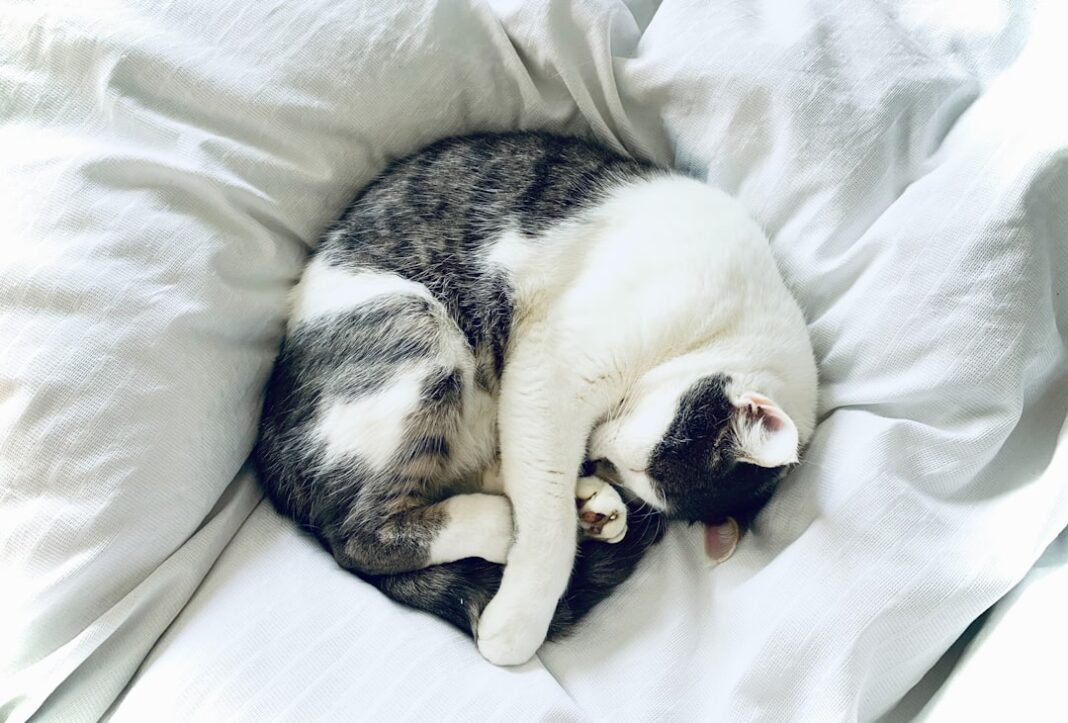“This post may contain affiliate links, if you click a link we may earn a commission if you purchase from that merchant.”
As our beloved pets age, they require more specialized care to ensure their health and well-being. Senior pets have unique health needs that require comprehensive coverage to manage the cost of veterinary care. Pet insurance can be a valuable tool for pet owners, providing financial security and peace of mind when it comes to their senior pets’ healthcare needs.
Table of Contents
Key Takeaways
- Comprehensive coverage is important for senior pets to ensure they receive the necessary medical care.
- Senior pets are at higher risk for health issues and medical expenses can be costly.
- Pet insurance can provide benefits for senior pets, including coverage for pre-existing conditions.
- When choosing coverage, it’s important to consider factors such as policy limits, exclusions, and customer service.
- Investing in comprehensive coverage can help offset the cost of veterinary care for senior pets.
Understanding the Needs of Senior Pets: Health Risks and Medical Expenses
Senior pets are more prone to certain health risks and medical conditions compared to their younger counterparts. Arthritis, cancer, and dental problems are just a few examples of the health issues that senior pets may face. These conditions can be costly to treat and manage, making comprehensive coverage essential for senior pets.
Arthritis is a common condition in senior pets, causing pain and discomfort in their joints. Treatment options for arthritis can include medication, physical therapy, and even surgery in severe cases. The cost of these treatments can quickly add up, making it crucial for pet owners to have comprehensive coverage that includes coverage for chronic conditions like arthritis.
Cancer is another health risk that becomes more prevalent in senior pets. Cancer treatments such as chemotherapy, radiation therapy, and surgery can be expensive. Comprehensive coverage can help pet owners manage the cost of these treatments and provide their senior pets with the care they need.
Dental problems are also common in senior pets due to years of wear and tear on their teeth. Dental cleanings, extractions, and other dental procedures can be costly. Having comprehensive coverage that includes dental care can help pet owners afford these necessary treatments for their senior pets.
The Benefits of Pet Insurance for Senior Pets
Pet insurance offers numerous benefits for senior pets and their owners. One of the most significant benefits is the ability to manage the cost of veterinary care. With comprehensive coverage, pet owners can have peace of mind knowing that they will be able to provide their senior pets with the necessary medical treatments without breaking the bank.
Comprehensive coverage can also provide financial security for pet owners. Unexpected medical expenses can quickly add up, especially for senior pets who may require more frequent veterinary visits and treatments. Having pet insurance can help alleviate the financial burden and allow pet owners to focus on providing the best care for their senior pets.
Another benefit of pet insurance is the ability to choose the best treatment options for your senior pet without worrying about the cost. With comprehensive coverage, pet owners can explore all available treatment options and make decisions based on what is best for their pet’s health, rather than what they can afford.
Types of Coverage: What to Look for in a Comprehensive Plan
When choosing a comprehensive plan for your senior pet, there are several key factors to consider. First and foremost, the plan should cover accidents, illnesses, and preventive care. Accidents and illnesses can happen at any age, and preventive care is essential for maintaining your senior pet’s health.
Additionally, look for plans that cover chronic conditions and hereditary conditions. As mentioned earlier, senior pets are more prone to chronic conditions such as arthritis and cancer. Having coverage for these conditions ensures that your pet will receive the necessary treatments without incurring exorbitant costs.
Hereditary conditions are also important to consider, especially if your senior pet is a purebred or has a known genetic predisposition to certain health issues. Make sure that the plan you choose covers hereditary conditions to ensure that your pet is protected.
Choosing the Right Coverage: Factors to Consider for Senior Pets
When choosing coverage for your senior pet, it’s important to consider their age and current health status. Some insurance providers may have age restrictions or limitations on coverage for pre-existing conditions. Be sure to read the policy details carefully and choose a plan that aligns with your senior pet’s needs.
Additionally, look for plans that offer customizable coverage options. Every pet is unique, and their healthcare needs may vary. Being able to tailor your coverage to your senior pet’s specific needs can ensure that they receive the best care possible.
Understanding Policy Limits and Exclusions
Policy limits and exclusions can significantly impact the coverage and cost of pet insurance. Policy limits refer to the maximum amount that the insurance provider will pay for a specific treatment or condition. Exclusions, on the other hand, are specific conditions or treatments that are not covered by the policy.
It’s essential to understand the terms and conditions of your policy before purchasing pet insurance. Make sure you are aware of any policy limits or exclusions that may affect your senior pet’s coverage. This will help you make an informed decision and choose a plan that provides the most comprehensive coverage for your pet.
The Cost of Veterinary Care: How Comprehensive Coverage Can Help
Veterinary care can be expensive, especially for senior pets who may require more frequent visits and treatments. Comprehensive coverage can help manage the cost of veterinary care by covering a significant portion of the expenses.
Without insurance, pet owners may find themselves facing hefty bills for treatments and procedures. This can lead to difficult decisions regarding their senior pet’s healthcare. With comprehensive coverage, pet owners can focus on providing the best care for their senior pets without worrying about the financial implications.
Customer Service: Why It Matters When Choosing a Pet Insurance Provider
Good customer service is crucial when choosing a pet insurance provider. Dealing with a responsive and helpful customer service team can make all the difference when it comes to filing claims, understanding policy details, and addressing any concerns or questions that may arise.
Before choosing a pet insurance provider, take the time to research their customer service reputation. Read reviews from other pet owners and look for providers that have a track record of excellent customer service. This will ensure that you have a positive experience when dealing with your pet’s insurance needs.
Pre-Existing Conditions: How They Affect Coverage for Senior Pets
Pre-existing conditions can have a significant impact on the coverage and cost of pet insurance for senior pets. A pre-existing condition is any illness or injury that your pet has before the start of the insurance policy. Some insurance providers may exclude coverage for pre-existing conditions, while others may offer limited coverage or require a waiting period before coverage begins.
It’s important to understand how pre-existing conditions are defined and covered by your policy. Some providers may consider any condition that showed symptoms or required treatment before the policy start date as a pre-existing condition. Others may have more lenient definitions. Be sure to read the policy details carefully and ask questions if you are unsure about how pre-existing conditions are covered.
Investing in Comprehensive Coverage for Your Senior Pet
Investing in comprehensive coverage for your senior pet is a wise decision that can provide peace of mind and financial security. Senior pets have unique health needs that require specialized care, and comprehensive coverage can help manage the cost of veterinary care.
When choosing coverage for your senior pet, consider their age, health status, and specific healthcare needs. Look for plans that offer comprehensive coverage for accidents, illnesses, preventive care, chronic conditions, and hereditary conditions.
Understanding policy limits, exclusions, and how pre-existing conditions are covered is essential to make an informed decision. Finally, choose a pet insurance provider with a reputation for excellent customer service to ensure a positive experience when dealing with your pet’s insurance needs.
By investing in comprehensive coverage for your senior pet, you can provide them with the best possible care while protecting yourself from unexpected veterinary expenses.
If you’re a pet owner, you know how important it is to protect your furry friend. But what about your senior pet? They may require extra care and attention as they age. That’s why comprehensive coverage is crucial. In fact, it’s just as important as having the right car insurance coverage or finding the best travel insurance plans. Just like you would research the benefits of different health insurance plans or tips for choosing the best travel insurance policy, you should also explore how to protect your senior pet with comprehensive coverage. It’s an essential part of ensuring their health and well-being in their golden years. To learn more about comprehensive coverage for senior pets, check out this related article: Reasons Why You Need a Travel Protection Plan.
FAQs
What is comprehensive coverage for senior pets?
Comprehensive coverage for senior pets is a type of pet insurance that covers a wide range of medical expenses for older pets, including chronic conditions, prescription medications, and routine care.
Why is it important to have comprehensive coverage for senior pets?
Comprehensive coverage for senior pets is important because as pets age, they are more likely to develop chronic conditions and require more frequent medical care. This type of coverage can help pet owners manage the costs of caring for their senior pets and ensure that they receive the medical attention they need.
What types of medical expenses are covered by comprehensive coverage for senior pets?
Comprehensive coverage for senior pets typically covers a wide range of medical expenses, including diagnostic tests, prescription medications, surgeries, hospitalization, and routine care such as vaccinations and wellness exams.
What factors should I consider when choosing a comprehensive coverage plan for my senior pet?
When choosing a comprehensive coverage plan for your senior pet, it is important to consider factors such as the age and health of your pet, the coverage limits and deductibles of the plan, and any exclusions or limitations on coverage.
How much does comprehensive coverage for senior pets cost?
The cost of comprehensive coverage for senior pets can vary depending on a number of factors, including the age and health of your pet, the coverage limits and deductibles of the plan, and the provider you choose. It is important to shop around and compare plans to find the best coverage at a price that fits your budget.
Can I still get comprehensive coverage for my senior pet if they have pre-existing conditions?
Some comprehensive coverage plans may exclude coverage for pre-existing conditions, while others may offer limited coverage or require a waiting period before coverage begins. It is important to read the terms and conditions of any plan carefully to understand what is covered and what is not.






































